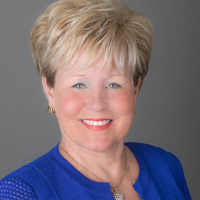On April 8, the Nashville Health Care Council hosted a member discussion with Debbie Osteen, CEO of Acadia Healthcare. This virtual event was the latest installment of the Council’s “Health Care Brass Tacks” series, which invites Council board members and C-suite health care leaders to discuss their perspectives on the coronavirus pandemic and its overall impact on the health care industry.
Acadia Healthcare provides behavioral health care services in 227 treatment facilities across 40 states and Puerto Rico. The company treats 70,000 patients every day.
Through four distinct service lines, the company offers multiple levels of care for various behavioral health and substance abuse disorders. The acute care service line offers short term, inpatient psychiatric care for people who need to be in a secure setting. The specialty service line includes inpatient and residential facilities for those needing substance abuse or eating disorder treatment. Acadia also operates medication assisted treatment clinics across the country. Last, the company runs residential facilities for children and adolescents in need of mental health care.
The COVID-19 pandemic has brought increased need for behavioral health services.
“One in five adults will need mental health treatment in their lifetime, but not all will seek it,” said Osteen. “We are seeing increased demand in all of our service lines, and particularly with acute care. As many as 35 million Americans are suffering from depression and anxiety as a result of the pandemic, and we’re seeing a record number of overdoses and suicide attempts. Our staff is working tirelessly to help during this crisis.”
When the lockdowns began in 2020 and people were unable to travel to a facility to get care, Acadia quickly strengthened its telehealth platform, expanding it to 100 facilities in just two weeks. At the same time Acadia had to work closely with state and local health officials to ensure that they could continue to operate their facilities without care disruption.
“We spend a lot of time educating about what we do and why we are essential,” said Osteen. “We are treating life and death conditions. It was critical that we had the most robust safety measures in place so that we could continue to treat our patients with uninterrupted service.”
Though there is growing understanding and awareness about the seriousness of mental health and substance abuse, Acadia still feels the pressure to educate the public and policymakers about these issues. According to Osteen, the effects of the pandemic will have prolonged effects on the population’s mental health, including the health of children and adolescents who have experienced major disruption over the past 12 months.
“Luckily, our payers have stepped up to support what we do, making sure that care is covered when it is needed. We are using data to make our treatments better all the time and demonstrate their effectiveness,” said Osteen.
Partnerships are an important part of Acadia’s strategy moving forward. As hospitals seek ways to treat patients who have mental health needs, they partner with Acadia to create joint ventures. Just last month, Geisinger and Acadia Healthcare formed a joint venture to address the urgent need for expanded, high-quality inpatient behavioral health services in central and northeastern Pennsylvania. Acadia also partnered with Ascension Saint Thomas in Nashville to build a 76-bed inpatient behavioral health hospital, which opened in December.
“Acadia has an excellent track record for supporting the full continuum of care – providing the right care in the right place,” said Osteen. “Partnerships are a great way to reach new markets and share best practices. When we work together, we can optimize patient care.”
As a final thought, Osteen stressed the importance of equity in mental health, and that education about its importance is still needed. Some cultures are wary of mental health, so Acadia actively partners with trusted organizations within communities to reach those who may need support or information.
